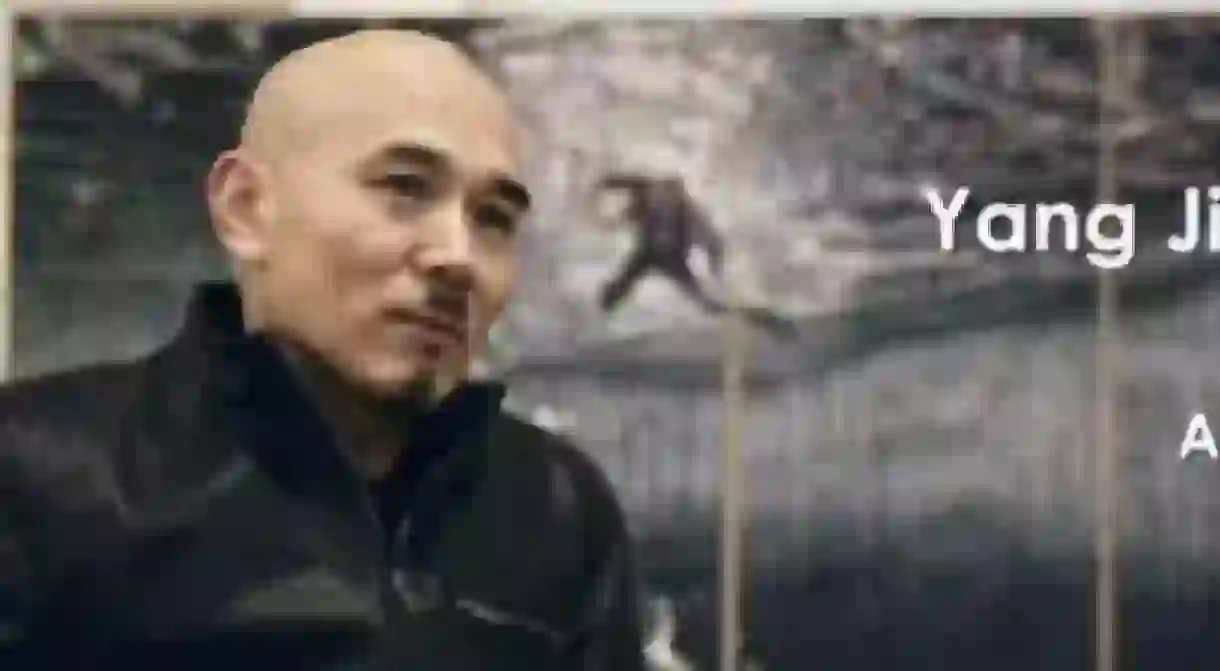Interviewing Yang Jiechang On Ancient Ink And Contemporary Art

Yang Jiechang, a Chinese artist currently residing in Paris, was born just 10 years before the launch of Mao’s Cultural Revolution. Today, his ink paintings forge a space between traditional Chinese craft and contemporary, global art. In a series of interviews with the art world’s leading figures, Culture Trip partners with Artshare.com, who talked to Yang Jiechang about his life, work and identity as an artist.
What is it like to be an artist today, as supposed to two decades ago?
Whether it was in the past or today’s world, it is not easy to be an artist. Back then, art was always created to serve other purposes. For example, [I started learning art because] I wanted to join the Cultural Revolution and be a Red Guard. As I grew up and got acquainted with avant-garde art, the society forbade that. You could only do socialist art taught by the academies. Now people have accepted contemporary art, it has gotten even more difficult. Because apart from challenging the norms, there is a problem of art language. Therefore the issues art raises help to improve the society at different times. Actually, I like this kind of challenge. I like constantly challenging myself.
You come from China, have lived in Germany and now reside in France. How has this experience shaped your art?
Even when I was in China back in the 1980s, I had already stopped considering myself as a Chinese artist. At that time the atmosphere was comparatively open. After the Cultural Revolution, we were the first to go to university. Under the influence of various ideas, we consider that there was more to our mission than changing China. So it was really open. I kept this attitude from the 1980s when I arrived in Germany in 1988 and later moved to France. Because we are now faced with all sorts of problems. If you only look at today’s society from a Chinese perspective, then what you see would be very limited. Of course I am from China, more specifically from the Canton area. Coming from the Canton area again implies different things. Then it becomes very interesting.
What inspires your art?
I have always used ink brushes to create my art. I first picked up the ink brush at the age of three, and it has been 54 years since. Therefore I have become very used to this medium. Using ink brush is very special, but many fail to acknowledge that. They only see drawing with an ink brush as a Chinese tradition. Actually there is more to it. Ink brushes are cheap to get and easy to use. Anyone can pick up an ink brush and draw like an artist. With this medium, we can realise Beuys’ belief that ‘everyone is an artist.’ For content, I usually choose subject matter that tend to be more problematic, probably because I am under the influence of German Romanticism.
What makes a good artist?
I think a good artist should be true to himself/herself. Because it is not possible to ask the others to act in your way. Similarly, you cannot ask the whole world to adapt your likings. The most important thing is still introspection, not focusing on the outer being but the inner soul. So if one is introspective and true to oneself, that person already possesses the basic qualities of a good artist. It takes time. It takes a century to determine whether one is a good artist. If an artist is still praised in a hundred years time, then for sure he/she is a good artist. If not, even the most famous artist or those who produce the most expensive works, they still might not be a good artist.
What is your advice to emerging artists in China?
This links to the previous question. It takes a century [to determine whether one is a good artist]. It should be different if every artist’s creations are based on how they would be perceived in a century’s time. Nowadays, everyone focuses on short-term results, such as auction records in the last few years. Again, this is a question you have to ask yourself. According to my experience, it is about cultivating your artistic expression, then eventually realising it on your works. This is what I am comfortable with, and sounds about right. You shouldn’t put up an exhibition casually. More importantly, you shouldn’t create works just to meet market demands.













